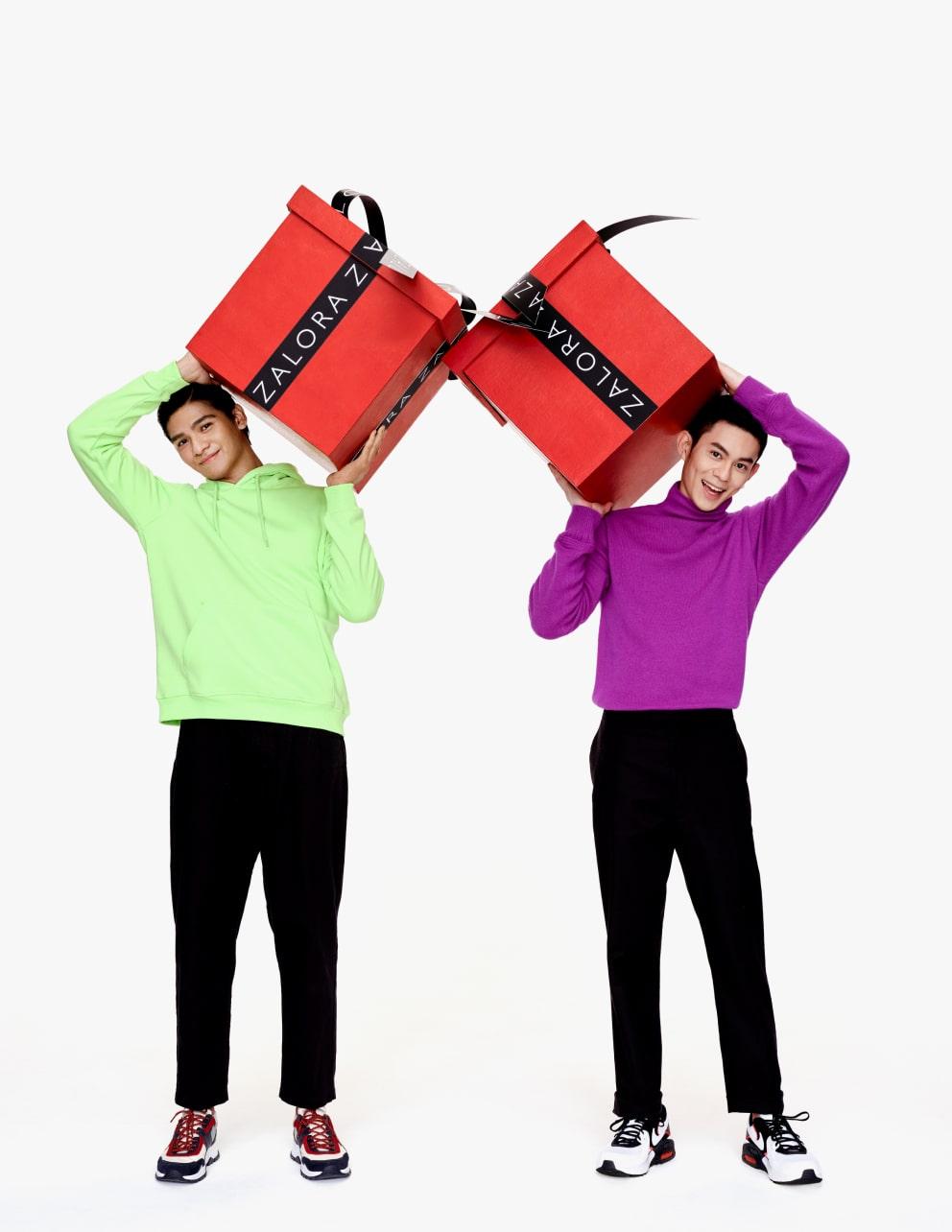Guides and reports
ZALORA: Agility and adapting to shoppers' fast-changing needs
We speak with ZALORA’s Chief Operations Officer, Rostin Javadi, on how the leading ecommerce brand in Asia quickly responded to the challenges brought about by Covid-19 – and how it’s adapting in the new retail landscape.

Today’s retailers need agility to quickly respond to changes in the world, and the global Covid-19 pandemic has accelerated this need. How so?
For example, to cope with limited retail hours in a bid to control the spread of the pandemic, some brands have pivoted by going online or introducing flexible fulfilment options like click-and-collect, curbside pickup, etc.
Shoppers have responded to the flexibility positively too, but here’s the challenge: shoppers want this flexibility to be the new normal. Globally, 73% want retailers to continue offering the same flexible options. As unveiled in the Adyen Agility Report Singapore, 87% of shoppers in Singapore are demanding the same. How are things evolving – and how can retailers keep up?
ZALORA’s Chief Operations Officer, Rostin Javadi, shares on shifts in shopper behavior, how ZALORA has pivoted, and its strategy to stay ahead.

ZALORA's Chief Operations Officer, Rostin Javadi, shares with Adyen on agility and the shifts in shopper behavior
About the contributor
Rostin Javadi is the Chief Operations Officer at ZALORA, Asia’s leading online fashion retail brand. Launched in 2012, ZALORA is currently present in Singapore, Indonesia, Malaysia, Brunei, the Philippines, Hong Kong and Taiwan.
On the ZALORA ecommerce platform, shoppers can shop their favorite local and international retail labels – and pay via their preferred payment methods including mobile wallets. As the brand expands in the region, the ZALORA-Adyen partnership is also growing to cater to the evolving shopping and payments needs of consumers today.
Impact of the pandemic and the shift to ecommerce
Covid-19 has hit the international retail industry hard, especially for brick-and-mortar stores – some have had to shutter amid lockdowns and the implementation of social distancing measures.
As people stayed at home, we observed a massive shift towards online shopping as consumers started to experiment and become more comfortable with ecommerce.
In Q2 2020, we recorded two million downloads of the ZALORA app and a 7-12% increase in the share of new customers in revenue depending on geography. This is a clear indication that consumers are going online faster than ever before.
Many companies have begun redirecting their businesses towards ecommerce channels too, to capture the attention of this new pool of online consumers – and ZALORA stands ready to embrace the opportunities brought on by this group.
A new product category launch in just 3 days
At the start of the pandemic, we noticed that shoppers’ demands were shifting towards essential items, as well as home and lifestyle products. So how can we cater to this new need?
Leveraging our strong pool of data insights and supply chain network, we launched our first Essential Supplies category in just 72 hours – offering food, personal care products and pharmaceuticals.
“It is crucial that we stay nimble and agile to respond quickly to evolving consumer needs.”
But things were changing fast. In the following months, we then observed a spike in value-for-money, quality apparel, and that’s when we rolled out our new Luxury category in late September across Singapore, Malaysia, Hong Kong and Taiwan. With the Luxury category, shoppers can access a wide variety of premium and luxury brands easily.
Amid the uncertainty surrounding Covid-19, it is crucial that we stay nimble and agile to respond quickly to evolving consumer needs. It’s why data is at the heart of everything we do. It helps us better understand what shoppers want, and allows us to deliver the best-in-class shopping experience.


Supporting our partner brands is key for amazing customer experience
Our partner brands are a big part of ZALORA’s business. We work with over 3,000 local and international brands to offer our shoppers authentic products from the most reliable of brands.
To support our partners during these uncertain times, we recently introduced some initiatives:
1. TRENDER: ZALORA’s exclusive data and insights service for partners
As a data-first company, we recognize how crucial it is to tap into data to effectively anticipate consumer trends and needs. To that end, we launched TRENDER in April 2020 – a data-solutions service that enables our brand partners to tap on our trade data and leverage insights on consumer demands and preferences amid Covid-19.
2. One Stock Solution (1SS): ZALORA’s “Fulfilment as a Service” solution
With the rise in online orders, we also launched One Stock Solutions (1SS) service a month after. 1SS is a “Fulfilment as a Service” solution that is offered to strategic brand partners to help them deliver products and reach a wider customer base more effectively.
Through these services, brands are not only armed with accurate data-driven insights to attract and retain customers, but are also provided the avenue to capture opportunities that were previously out of reach.
Ensuring the health of our partners helps shoppers access their favorite brands on the ZALORA platform. It’s all part of what we do to make shopping enjoyable.
Making shopping and payment easy for APAC’s diverse audience
At ZALORA, we are all about making shopping as convenient as possible. From offering popular digital payments including GrabPay, to a no-questions-asked 30-day returns policy, we also make sure shoppers can click-and-collect at 7-Eleven convenience stores across the region. Shoppers who want their items even faster can use our express delivery service, ZALORA NOW.
“We expect payment methods to continue to diversify amid this shift to online shopping.”

ZALORA caters to a mostly Southeast Asian audience, and the payments preferences here are as diverse as the region’s population. Over the course of the pandemic, several markets in Southeast Asia continue to indicate a strong preference for cash-on-delivery (COD). This is especially as many consumers are just beginning to dabble with ecommerce, and still show a lack of trust with online transactions.
The unequal penetration rate of bank cards, in vast markets such as Indonesia and Philippines, have also had an impact on the adoption of contactless payment methods.
That said, shoppers are gradually becoming more familiar with ecommerce, and contactless payments are starting to gain traction. We expect payment methods to continue to diversify amid this shift to online shopping, and we will continue to adapt our offerings to meet the evolving needs and preferences of our consumers too.
What lies ahead for retail
Ecommerce is here to stay, and will continue to be part and parcel of any brand’s strategy across the globe. As consumers become more comfortable purchasing online, retailers will need to tweak and adapt their strategies in order to provide a more seamless shopping experience.
We also anticipate that brands will adopt a more omnichannel approach when it comes to targeting consumers. With consumers now adept at online shopping, as well as exposed to more varied content and options available through social media channels, brands must be ready to capture their attention as they browse – be it through notifications, SMS, Facebook or Google advertising.
On our part, ZALORA will continue to work closely with government agencies as best as we can, to help businesses adopt ecommerce and improve online retail processes and policies to quickly adapt in this new retail landscape.
